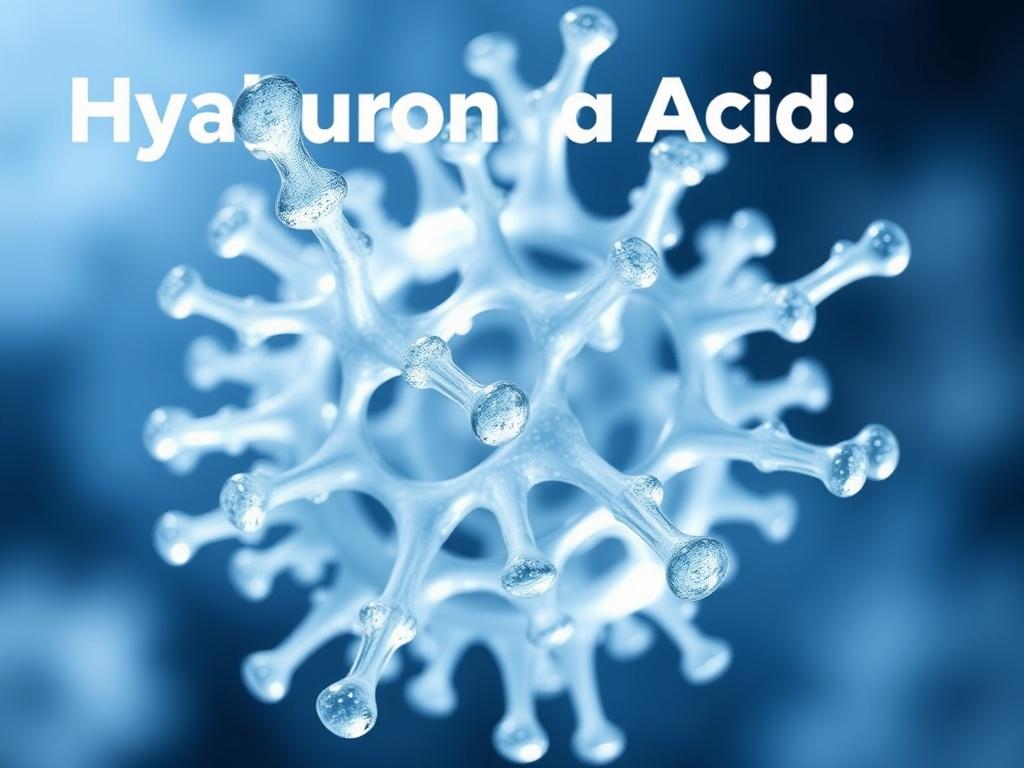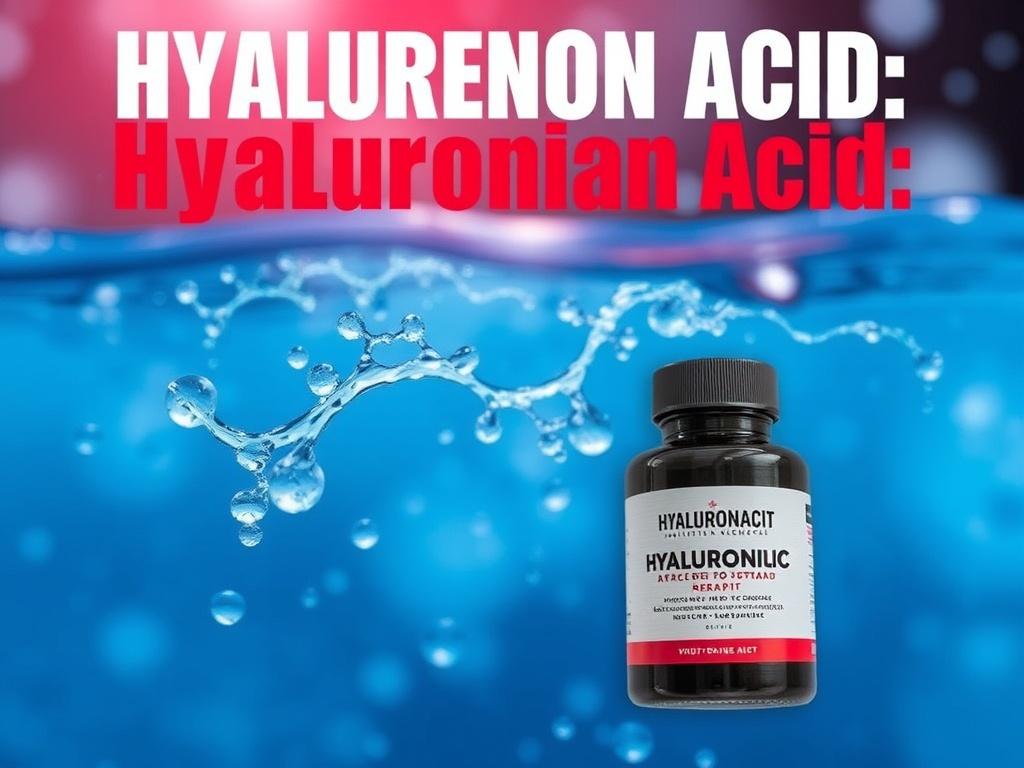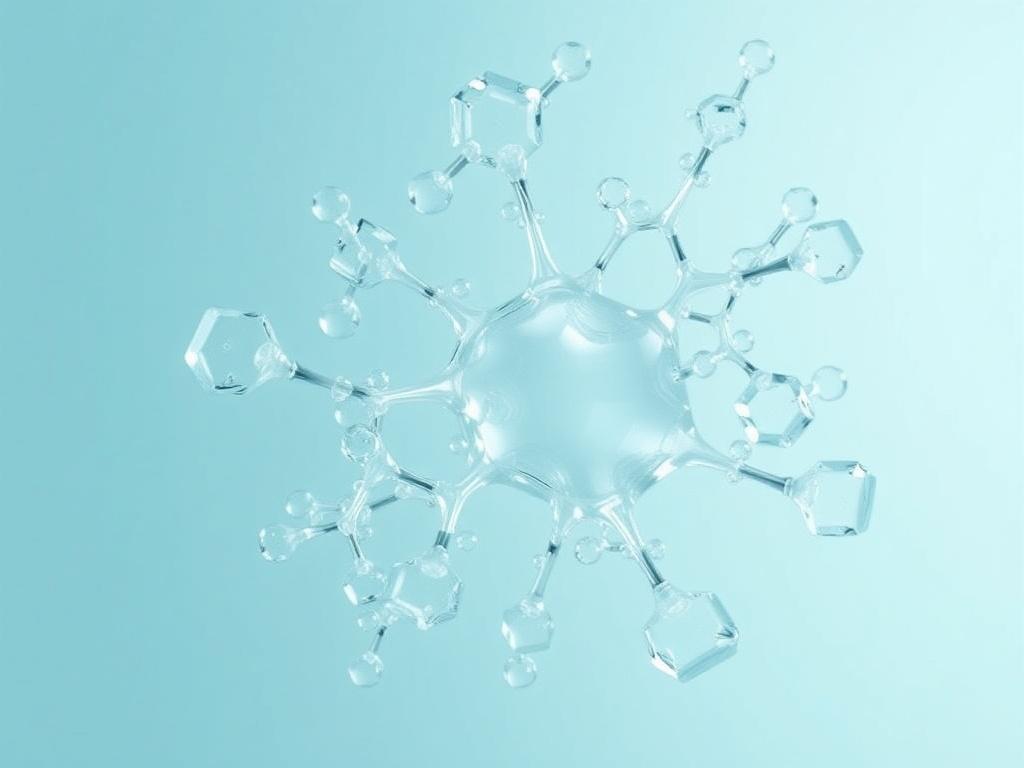Содержание статьи
- 1 What Is Hyaluronic Acid?
- 2 The Science Behind Hyaluronic Acid: Why It’s So Effective
- 3 Benefits of Hyaluronic Acid for Your Skin
- 4 Using Hyaluronic Acid: How to Maximize Its Power
- 5 Addressing Common Myths About Hyaluronic Acid
- 6 Hyaluronic Acid Beyond Skincare: Other Amazing Uses
- 7 Tips for Choosing the Best Hyaluronic Acid Product
- 8 Incorporating Hyaluronic Acid Into Different Skin Types and Ages
If you’ve ever wandered the beauty aisle or scrolled through skincare blogs, chances are you’ve come across hyaluronic acid—a true superstar in the world of hydration. It’s often hailed as the “ultimate hydration hero,” and for good reason. But what exactly is hyaluronic acid, and why has it become such a staple in skincare routines around the globe? Whether you’re a skincare novice or an enthusiast, understanding this miracle ingredient can transform how you care for your skin and help you unlock a natural, radiant glow. Let’s dive deep into the world of hyaluronic acid, unpacking its benefits, how it works, and why it should definitely have a place in your beauty regimen.
What Is Hyaluronic Acid?

At its core, hyaluronic acid (often shortened to HA) is a naturally occurring substance in the body. Found mostly in our skin, eyes, and connective tissues, it plays a crucial role in retaining moisture. Think of it as the body’s own hydration magnet. One of the most fascinating facts about hyaluronic acid is its impressive ability to hold up to 1,000 times its weight in water, making it a vital component for maintaining skin’s plumpness and elasticity.
Over the years, hyaluronic acid has made a significant leap from being just a natural substance inside us to becoming a celebrated topical ingredient in serums, creams, and lotions. When applied correctly, it can deeply improve moisture levels on the skin’s surface, improve texture, and reduce visible signs of aging.
How Does Hyaluronic Acid Work?
The magic of hyaluronic acid lies in its unique molecular structure. It acts like a sponge, attracting water molecules from the environment and from deeper layers of the skin and locking them into the surface layer. This hydration boost leads to smoother, softer skin that looks and feels fresher. Additionally, this moisture retention helps to support the skin’s barrier, defending it against environmental damage.
But there’s more to this ingredient than just hydration. Hyaluronic acid also helps to promote tissue repair, soothe irritation, and enhance skin elasticity. That’s why it’s often found in products aimed at sensitive skin or those recovering from procedures like chemical peels or laser treatments.
The Science Behind Hyaluronic Acid: Why It’s So Effective
Understanding why hyaluronic acid is so effective requires a peek at the science behind it. It belongs to a group of molecules called glycosaminoglycans (GAGs), which are long chains of polysaccharides found throughout your body. What makes hyaluronic acid special is its size and water-binding capacity.
Here’s a neat table that breaks down some of its features:
| Feature | Description | Impact on Skin |
|---|---|---|
| Molecular Weight | Varies (low, medium, high) | Determines skin penetration and hydration depth |
| Water-Binding Ability | Can hold up to 1,000x its weight in water | Provides intense hydration and plumping effect |
| Biocompatibility | Naturally present in human skin | Safe, non-irritating, suitable for sensitive skin |
| Role in Healing | Supports tissue repair and inflammation reduction | Helps soothe irritated or damaged skin |
The molecular weight of hyaluronic acid in a product influences its effectiveness. Low molecular weight HA can penetrate deeper into the skin, offering more long-term hydration benefits, while high molecular weight HA tends to sit on the surface, providing immediate moisture and barrier protection.
Benefits of Hyaluronic Acid for Your Skin
There’s a reason why dermatologists and skincare experts rave about hyaluronic acid. Beyond being a moisture magnet, it offers an array of skin benefits that make it an all-around powerhouse.
- Intense Hydration: It’s the go-to for boosting moisture levels, especially for dry or dehydrated skin.
- Reduces Fine Lines and Wrinkles: By plumping the skin, HA diminishes the appearance of aging signs.
- Soothes Sensitivity: Its gentle nature helps calm redness and irritation.
- Balances Oily Skin: Surprising as it sounds, even oily or acne-prone skin can benefit from its hydration without clogging pores.
- Enhances Skin Elasticity: Keeps skin looking firmer and more youthful by supporting collagen production.
- Supports Healing: Helps repair barrier damage and boosts wound healing.
Because hyaluronic acid naturally occurs in the skin, it’s highly compatible with most skin types and ages. It works well alongside many other skincare ingredients, like retinol or vitamin C, making it easy to incorporate into any routine.
Using Hyaluronic Acid: How to Maximize Its Power

The effectiveness of hyaluronic acid doesn’t just depend on having it in your product; it also depends on how you use it. Here are simple tips to get the best results from your HA products:
- Apply on Damp Skin: After cleansing, mist your face lightly or leave a little moisture on your skin before application. This helps HA lock in available moisture.
- Layer Under a Moisturizer: Because hyaluronic acid draws moisture from its surroundings, using a moisturizer on top seals in the hydration and prevents water loss.
- Use Regularly: Consistency is key. Daily use helps maintain skin hydration over time.
- Combine with Other Hydrating Ingredients: Ingredients like glycerin, ceramides, and squalane complement HA to enhance overall skin barrier health.
- Choose the Right Molecular Weight: For deeper hydration, look for products that include low molecular weight hyaluronic acid.
Common Ways to Incorporate Hyaluronic Acid in Your Routine
Many skincare products use hyaluronic acid as a key ingredient. Here’s a handy list of common product types and their role:
| Product Type | Use | Hydration Level |
|---|---|---|
| Serums | Concentrated hydration booster, usually applied after cleansing | High |
| Moisturizers | Locks hydration in and provides a protective barrier | Medium to High |
| Sheet Masks | Provides an intense, short-term hydration surge | High |
| Eye Creams | Targets delicate under-eye skin for hydration and plumping | Moderate |
Addressing Common Myths About Hyaluronic Acid
Despite its widespread use, some myths and misconceptions surround hyaluronic acid. Let’s clear up a few of the most common ones:
- Myth #1: Hyaluronic Acid Is Only for Dry Skin. Actually, HA benefits all skin types by maintaining optimal hydration balance, even oily or combination skin.
- Myth #2: Hyaluronic Acid Makes Skin Greasy or Heavy. HA is lightweight and absorbs quickly without leaving buildup.
- Myth #3: You Need Expensive Products for Effective Hyaluronic Acid. Many affordable products contain effective formulations; it’s more about concentration and quality than price.
- Myth #4: Hyaluronic Acid Alone Can Reverse Aging. While it greatly improves hydration and plumpness, it’s best when paired with other anti-aging ingredients for comprehensive care.
Hyaluronic Acid Beyond Skincare: Other Amazing Uses

While its role in topical skincare steals the spotlight, hyaluronic acid’s benefits extend into other areas as well. Here are some interesting additional uses:
- Medical Applications: HA is used in eye surgeries, joint injections for osteoarthritis, and wound healing formulations due to its lubricating and soothing properties.
- Oral Supplements: Some take HA supplements to support joint health and skin hydration from within, though efficacy varies person to person.
- Hair and Scalp Care: Adding HA to shampoos and conditioners helps maintain scalp hydration and hair moisture, leading to healthier strands.
How Safe Is Hyaluronic Acid?
Given its natural presence in the body, hyaluronic acid is generally considered very safe and non-irritating. Allergic reactions are rare, making it suitable for sensitive skin or those with conditions like rosacea or eczema. That said, patch testing any new product is a smart approach to avoid unexpected reactions.
Tips for Choosing the Best Hyaluronic Acid Product
With countless products marking themselves as “hyaluronic acid” infused, how do you find the perfect match? Here are some tips to guide your choice:
- Check the Ingredient List: Look for hyaluronic acid or sodium hyaluronate near the top for better concentration.
- Look for Multiple Molecular Weights: Some products use a blend to hydrate various skin layers effectively.
- Pair With Moisturizers: If buying a serum, ensure you have a good moisturizer to follow up.
- Avoid Unnecessary Additives: If you have sensitive skin, choose formulas free of fragrance, alcohol, or harsh preservatives.
- Read User Reviews: Real experiences can give insight into texture, absorption, and results.
Incorporating Hyaluronic Acid Into Different Skin Types and Ages
Whether you’re a teen dealing with early breakouts or a mature adult wanting to fight wrinkles, hyaluronic acid adapts beautifully to your specific needs.
| Skin Type/Age | Benefits of HA | Recommended Product Type |
|---|---|---|
| Oily/Acne-Prone | Hydrates without clogging pores, soothes inflammation. | Lightweight serums or gels |
| Dry | Provides deep hydration and barrier protection. | Thicker creams or layered serum + moisturizer routine |
| Sensitive | Soothes redness, supports healing. | Fragrance-free, gentle serums or creams |
| Mature Skin | Plumps fine lines, enhances elasticity. | Anti-aging serums with HA + complementary ingredients like peptides |
| Teens/Young Adults | Keeps skin balanced and supports repair. | Light serums or moisturizers with HA |
Conclusion
Hyaluronic acid truly lives up to its reputation as the ultimate hydration hero. It’s a versatile, scientifically backed ingredient that delivers intense moisture, supports skin health, and enhances overall complexion, all while being gentle enough for nearly every skin type and age. Whether you’re battling dryness, looking to smooth fine lines, or simply want that radiant, dewy glow, hyaluronic acid can be a cornerstone of your skincare routine. The key to unlocking its full potential is understanding how it works, using the right formulations, and consistently incorporating it alongside other supportive ingredients. With hyaluronic acid in your beauty arsenal, hydration and healthy skin are always within reach.

